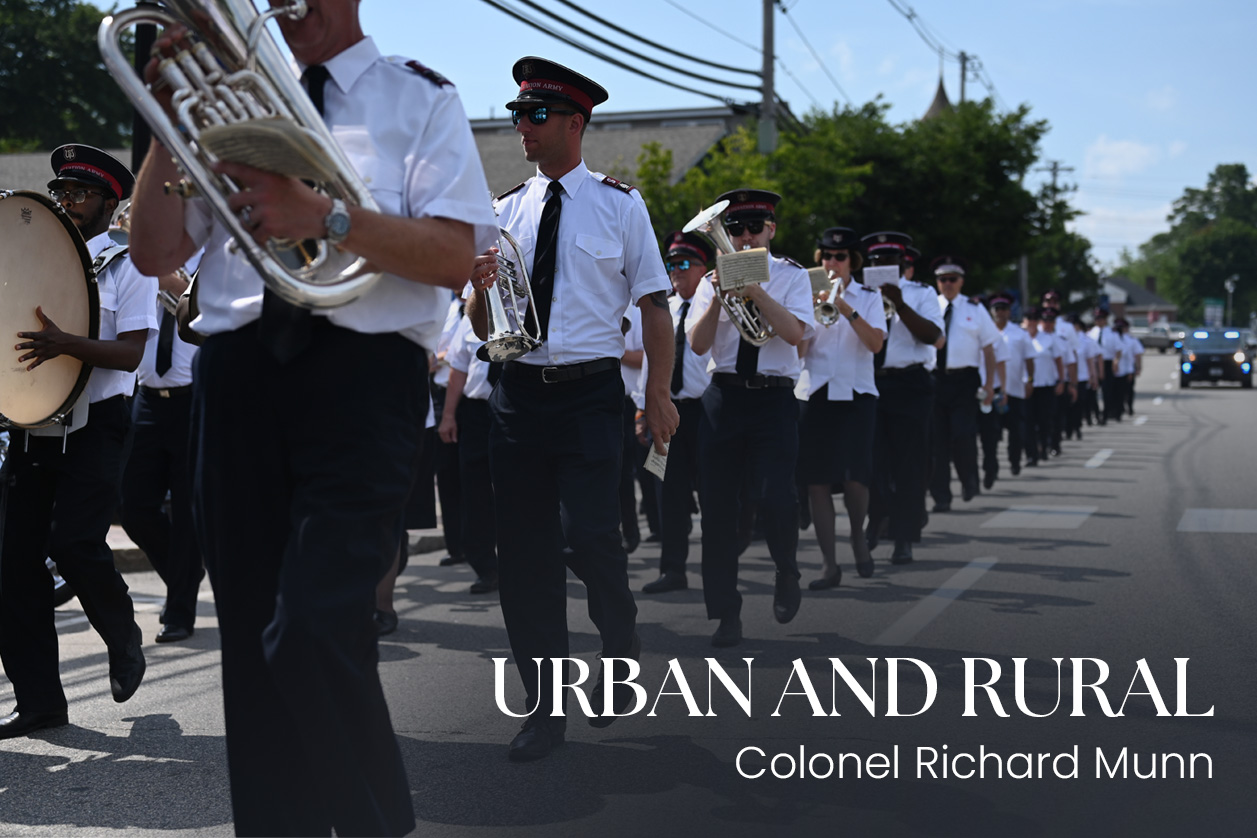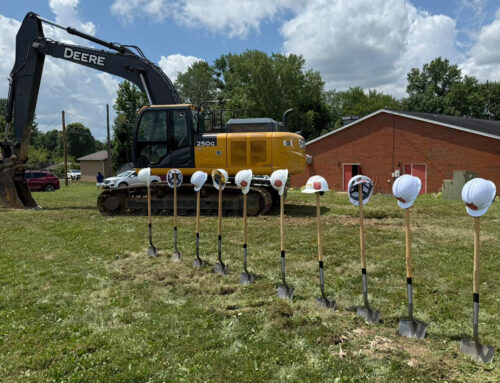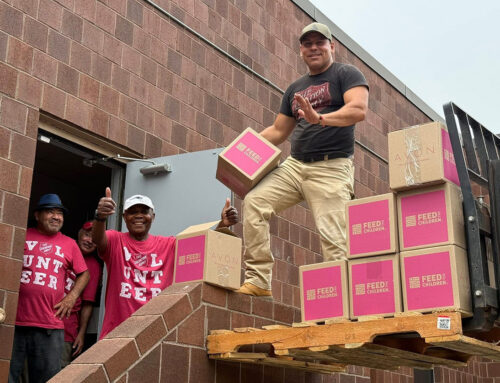
Salvationist Dynamics: Part 7
by Colonel Richard Munn
This 10-part series explores tried and trusted “pleasant tensions” matched together in The Salvation Army. Far from being feared or avoided, they give us dynamism: Salvationist dynamics.
Part 7: Urban and Rural
The very earliest days of the Christian Mission, and then The Salvation Army, were decidedly urban underclass. So much so, that when William Booth purchased the Regent Hall property in the significantly more prosperous West End of London, he was met with predictable criticism, along the lines of “we are an East End operation.” Booth’s vision was much grander.
However, the template was set, and soon after in the U.S. new plants were notably right in the heart of inner-city life. Here were the teeming people, the ever-present need, and the sheer energy that suited the Army personality.
What of small-town America? It’s interesting that today, numerous USA East corps are in distinctly isolated and rural communities, far from headquarters and city life, and experiencing raw community hardships and economic blight.
A genuine Salvationist dynamic is the missional contrast between congested urban wards, and sparse rural settlements. Same Army mission, very different catchment areas.
Historically the urban setting is our more natural habitat. We were born on the crowded city street, so to speak. That imprint is timeless. And yet, when the Salvation Army arrived in small-town America, it was a headline event, and some of that potency remains today.
Rural Salvation Army work can be expressed through a depth of close relationships that make for genuine fulfillment. Army personnel can serve the community feeling known and genuinely knowing others. Though likely small in number, we are doggedly persistent and are often a beloved part of town life—with local police and fire departments pitching in and raising money, and town hall officials including corps officers in civic dialogue.
Hell’s Kitchen and Mayberry: an Army being all things to all people so that by all possible means the Lord will save some.




